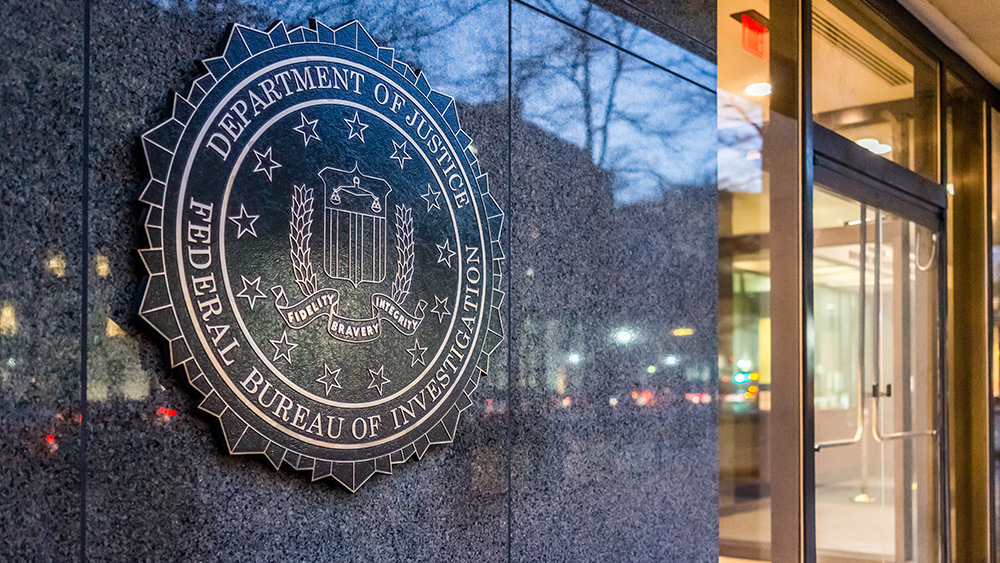The problem boils down to this
10/23/2023 / By News Editors

Everyone has their take as regards the problems besetting us. Few seem to grasp there is fundamentally just one problem. It is the problem that animates the others, giving them the power to be problems.
(Article republished from EricPetersAutos.com)
What is this one problem that leads to all the others?
It is force – especially when its use (and threatened use, which has the same effect) is legalized.
If force institutionalized were taken away, there would of course still be disagreements – as well as annoyances. But that is all there would be. Or at least, mostly. Violence – its use and its threatened use – will of course always be with us as there will always be people willing to resort to the use of force to get what they want. But they would be outliers – and occasional rather than ubiquitous threats.
How often have you been mugged?
Have you been able to go even one day without being forced to pay what are styled “taxes” – i.e., legalized mugging? You are forced to pay the “mugger” every single time you pay for anything. And when you get paid for the work you do, too.
Because such mugging it is legal – and so ubiquitous. The mugger in the alley is a kind of freelancer; he enjoys no such advantage and suffers the disadvantage of it being legal to attempt to avoid his depredations and to defend oneself against them.
If you don’t like someone, but he is legally powerless to force you to interact with him, then you are free to avoid him. And because you are able to avoid him, conflict is avoided.
How do you feel about people you’re forced to deal with – because they have the power to force you to deal with them? For example, the proliferation of government employees whose employment centers on your having to not only deal with them politely but also pay for the privilege?
Think of the government employee who comes onto your property uninvited to assess the value of your home – so that the government can force you to hand over money to pay for government “services” you don’t want or use, such as government schools. How do you feel about him? How about the government worker who puts his hands on your wife, your child – or your elderly parent – at the airport?
The cop who simply takes – legally! – the envelope full of cash you were going to use to pay for the used car you were on your way to buy when you got “pulled over” for not wearing a seatbelt. He says it’s “suspicious” – and it’s up to you to prove (at your expense) that the money is “legitimate.”
The mask-faced bureaucrat who forced you to close the doors to your business that no one was forced to walk through – leading to the bankrupting of your business?
Do you not feel hatred for them?
And how do these people feel about you? How does a person who has power over someone else, who can be made to obey, feel about having such power? What sort of person is attracted to that kind of power? How does a schoolyard bully feel about being able to make a smaller kid hand over his lunch money?
Force empowers the sadist – who becomes an official when force is legalized.
Take legalized force out of the equation and the sadist has no official power to torment anyone. He may succeed in finding some victims. But everyone is not his victim. And those who fall victim to him have the consolation of knowing they might be able to loosen their bonds when the sadist isn’t paying attention and lay hands on the bastard – which is considered a “crime” when done to an official sadist, such as the government worker with a uniform, a badge and a gun who orders you to get on the ground now! because you defied his order to “buckle up.”
Most people are not violent and seek therefore to avoid violence. Down that road lies peaceful resolution and co-existence. Your neighbor does not like the color you decided to paint your house. He can ask you to paint it a different color. He can plant tree along his property line, so that he no longer sees what displeases him. And he is free to move. You may not like this neighbor but you are not likely to hate him because all he can do is ask you to paint your house another color, plant some trees along his side of the property line – or move. And because he has no power to force you to do anything, you are probably more likely to give some weight to his preferences and maybe come to an agreeable compromise.
The absence of force encourages this just as charity is encouraged when people are not forced to “help.” They feel compassion for the truly needy. They do not resent them, at any rate – because why would they? They are objects of pity – as opposed to loci of legalized predation.
Libertarians and anarchists are regularly derided for advocating that institutionalized force – which is a tautology for government – be removed from human interaction. The accusations leveled include that the result would be mayhem. It is a hyperbolic and absurd accusation and easily demonstrated by noting the fact that friends and families base their interactions on libertarian-anarchic concepts; no one is forced to be friends with anyone and our families are bound by affection (with the occasional sad exception) and in any case no one is forced to remain part of any family.
Mayhem?
How about the institutionalized mayhem of legalized violence as the basis for human interaction? Which engenders the greater fear in most people – the burglar who might break into their house one night? Or the IRS agent who might seize their house in broad daylight?
Would you rather live with certain risks – as that you might one day fall victim to someone who acts to harm you? Or the certainty that you will be harmed, not just once but over and over again – and every day of your life, to very end of your life? And be legally powerless to raise a hand in you own defense?
To ask these questions is to answer them.
Read more at: EricPetersAutos.com
Submit a correction >>
Tagged Under:
big government, conspiracy, freedom, legalized violence, Liberty, living free, obey, rational, traitors, Tyranny
This article may contain statements that reflect the opinion of the author
RECENT NEWS & ARTICLES
COPYRIGHT © 2017 CONSPIRACY NEWS



















